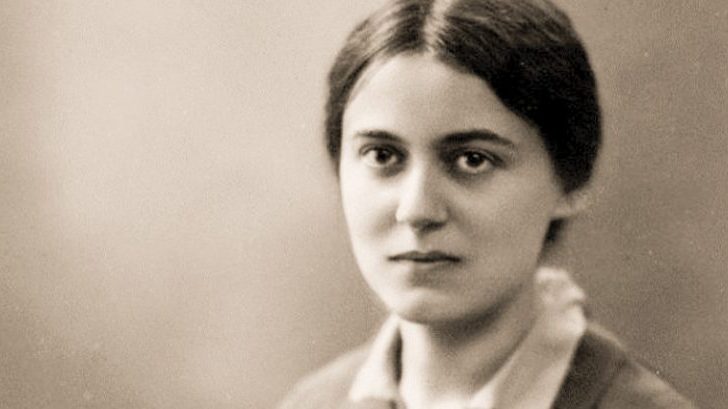Edith Stein: Selected Writings
ed. Marian Maskular CPS, foreword by Sarah Borden Shareky (Paulist Press, £35.99)
Edith Stein (St Theresa Benedicta) is very much a witness to faith for the modern world. It perhaps significant that her philosophical thesis in 1920 was entitled ‘The Problem of Empathy’, for empathy, the sympathetic love and concern for others lies, very much at the heart of what Christian witness ought to be in these troubled times that we live.
Stein died at the hands of National Socialism, and at present there seem to be similar tides of impassioned hate sweeping the world, in which anger has transcended any sense of empathy for many millions.
This book provides the reader, new to Edith Stein, with an overview of her life and the thmes of her writings. Thus it forms an ideal introduction to the saint’s thought.
But is would also be essential to read the book in tandem with a biography of the saint – Walter Herbstrith’s Edel Stein (Ignatius Press, £9.95) is the standard one. The integration of life and experience with thought and prayer in Edith Stein makes such a personal approach, perhaps unusual in a philosopher, essential in her case.
Philosopher
Edith Stein’s life as a woman philosopher and theologian makes her of special interest today. Her life and thought touches so many people not only through her philosophical ideas, but to her developing spirituality of very special interest. Hers is an appeal that reaches out to many people, often people with very varied ideas and approaches within Catholicism and Christianity. This too makes her perhaps of vital interest.
Edith Stein was a philosopher first of all, influenced by her teacher the phenomenologist Husserl. But her career advancement was affected by the prejudices of the male-dominated discipline in Germany. After her early conversion her desire was to be a nun.
It is this aspect of a woman of faith with ideas and special insights of her own and the social reactions to them that makes her of interest today to those who would wish to develop theological insights that draw on experience in its widest sense, the experiences of both men and women in their uniqueness.
But that theme of empathy mentioned above seems a touchstone for the essential qualities of Edith Stein, which readers will be able to explore for themselves across the volumes of her collected works.
Carmelite
Edith Stein was Carmelite, and naturally enough her writings are infused with the particular character of that order’s spiritual tradition.
But what is striking today is the universality of what she has to say, illstrated in this book by the chapter of selections that deal with ‘Community and Interconnection of All Mankind’. For her those words ‘all mankind’ were not en empty formula, but an essential fact of life.
Having fled Germany for a convent in Holland with her sister, they were arrested on August 2, 1942. A week later they were murdered in Auschwitz, along with other Jews, some baptised. She was a victim of nationalism and racism, forces that are still very much alive in the world. It would be a sad error to imagine that the shadow of Auschwitz in other forms does not still stretch across the world. Her witness to love, life, and faith in God remains to encourage others.
But to emphasise Edith Stein’s end would be to distract from the fact that most of her life, thoughts, and prayer was a part of an earlier time, and influenced by general themes, not a particular situation.
Title
The title mentioned above, On the Problem of Empathy (ICS Publications), published in 1989, is still available as part of the Collected Works of Edith Stein, published by the US-based Institute of Carmelite Studies. This should form the essential first step in a thorough exploration of her philosophy and spirituality. Also important is Edith Stein: The Philosophical Background by Alasdair MacIntyre (Continuum, £25.00), published in 2007.
Essential reading, too, especially for Catholics, and indeed all Christians, interested in Edith Stein is her unfinished autobiography Life in a Jewish Family, 1891-1916 (ICS Publications) which appeared as the first volume of her collected works. For it was in the Jewish home of her childhood that her experience of God had its beginning.


 Peter Costello
Peter Costello Edith Stein
Edith Stein 